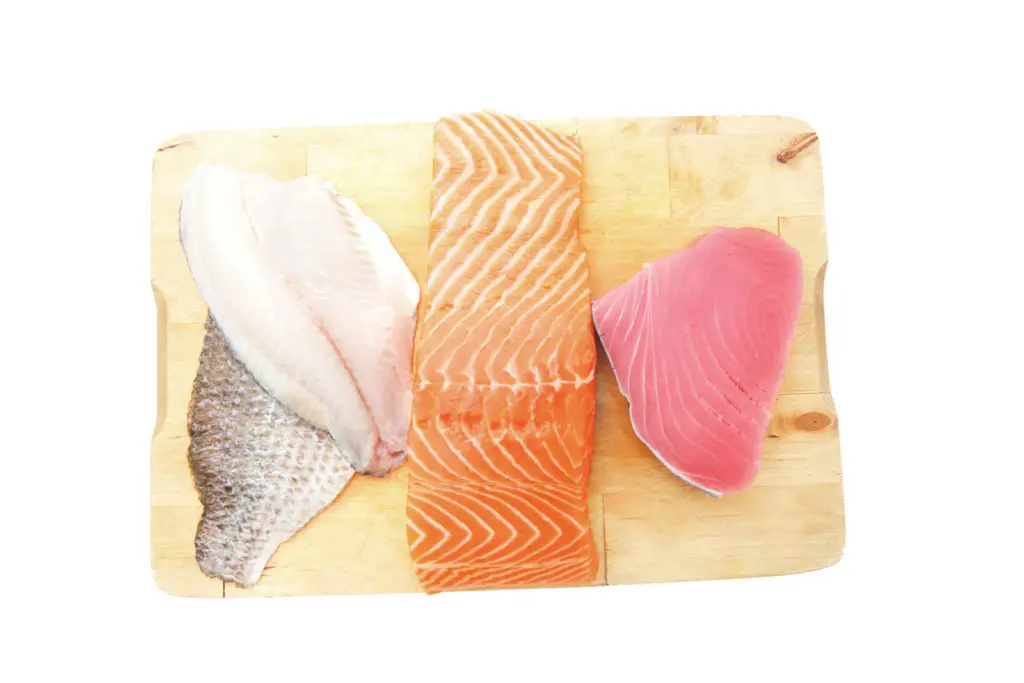Salmon is a delicious and nutritious fish that is enjoyed by many people around the world. However, for some individuals, consuming salmon or coming into contact with salmon products can lead to allergic reactions. In this article, we will explore the allergens present in smoked salmon, the symptoms of salmon allergies, and provide insights into whether one can be allergic to cooked salmon but not raw.
Allergens in Salmon
When it comes to fish allergies, the main culprit is a specific protein called parvalbumin. This protein is highly concentrated in the white muscle tissue of fish, including salmon. Parvalbumin is relatively heat stable, meaning that it is not destroyed during the cooking or smoking process. As a result, both raw and cooked salmon can trigger allergic reactions in sensitive individuals.
It is important to note that fish allergies can vary from person to person. While some individuals may be allergic to multiple fish species, others may have allergies specific to certain types of fish. For example, tuna, which has predominantly red muscle tissue, is often better tolerated by people with fish allergies compared to fish with higher concentrations of parvalbumin in their white muscle tissue.
Symptoms of Salmon Allergies
Salmon allergies can cause a range of symptoms, varying from mild to severe reactions. Some common symptoms include:
- Oral allergy syndrome, characterized by tingling or swelling of the mouth and throat
- Anaphylactic shock, which can cause difficulty breathing and circulatory collapse
- Abdominal pain, vomiting, or diarrhea
- Allergic skin reactions, such as itchiness, redness, hives, or eczema flare-ups
- Allergic rhinitis or asthma symptoms
In some cases, individuals with a high sensitivity to salmon allergens may develop allergic reactions simply by inhaling steam from cooked salmon or coming into contact with dried fish particles. Occupational exposure to salmon allergens in workers involved in fish processing can also lead to respiratory symptoms and skin rash.
Can You Be Allergic to Cooked Salmon but Not Raw?
While some people may wonder if they can be allergic to cooked salmon but not raw, it is important to understand that the allergenic proteins in salmon are not destroyed by cooking or smoking. Therefore, both raw and cooked salmon can trigger allergic reactions in individuals with salmon allergies.
It is also worth noting that a fish allergy does not necessarily mean that other seafood, such as mussels or prawns, will provoke an allergic reaction. However, caution should be exercised when consuming surimi or imitation crabmeat, as it is often made from chopped and pressed fish, which can still contain allergenic proteins.
Diagnosis and Treatment
If you suspect a salmon allergy, it is essential to consult with a healthcare professional for proper diagnosis and treatment. The doctor may conduct skin and/or blood tests to confirm the allergy and rule out any doubts. In some cases, a provocation test may be necessary to determine if salmon triggers an allergic reaction.
The best way to manage a salmon allergy is to avoid consuming salmon and any salmon-based products. Individuals with severe allergies may need to carry an emergency kit containing an adrenaline auto-injector, corticosteroids, and antihistamines in case of anaphylactic shock.
Frequently Asked Questions
Q: Can you develop a salmon allergy later in life?
A: Yes, it is possible to develop a salmon allergy at any stage of life, although it is more common for allergies to develop in childhood and persist into adulthood.
Q: Are there any other fish species that can trigger allergies similar to salmon?
A: Yes, other fish species can also contain parvalbumin and trigger similar allergic reactions. Tuna, prawn, and whitefish are among the most frequent seafood allergens reported in studies.
Q: Can fish allergies be outgrown?
A: While allergies to milk or eggs often subside over time, fish allergies generally tend to persist throughout life. It is important to consult with a healthcare professional for proper diagnosis and management.

In conclusion, salmon allergies can cause a range of symptoms, and both raw and cooked salmon can trigger allergic reactions. It is crucial to seek medical advice for proper diagnosis and management of salmon allergies. Avoiding salmon and salmon-based products is key to preventing allergic reactions in individuals with salmon allergies.
If you want to know other articles similar to Understanding the allergens and symptoms of smoked salmon allergies you can visit the Food allergies category.


Related Articles